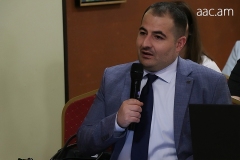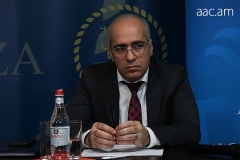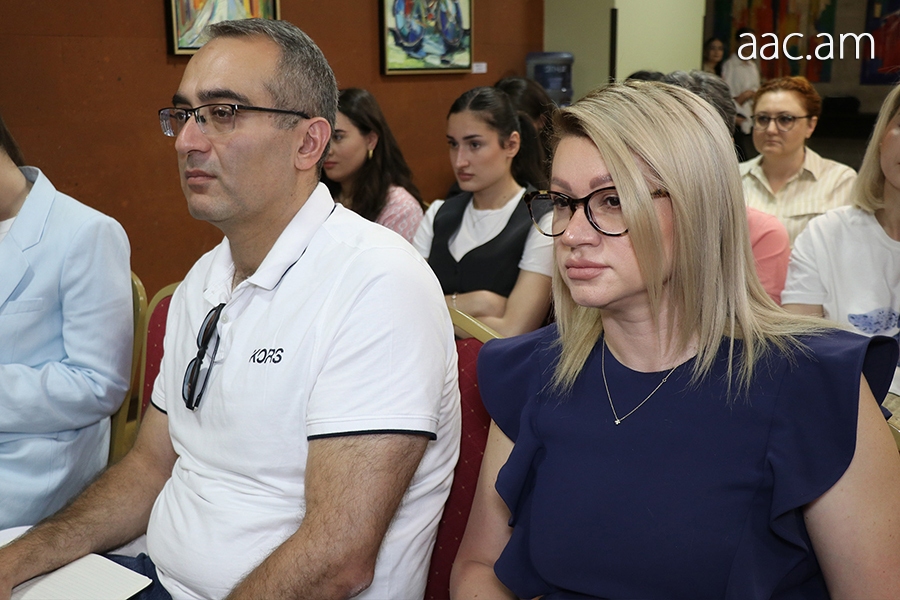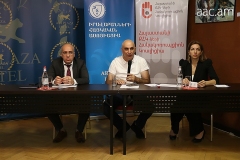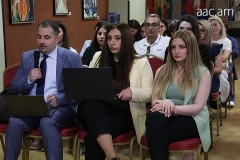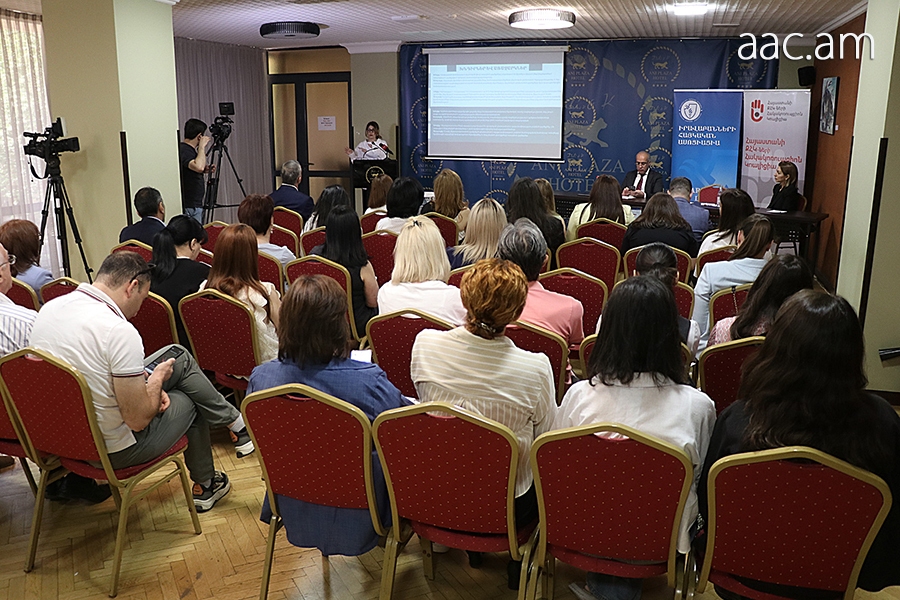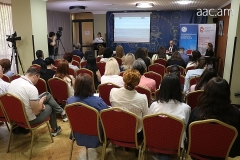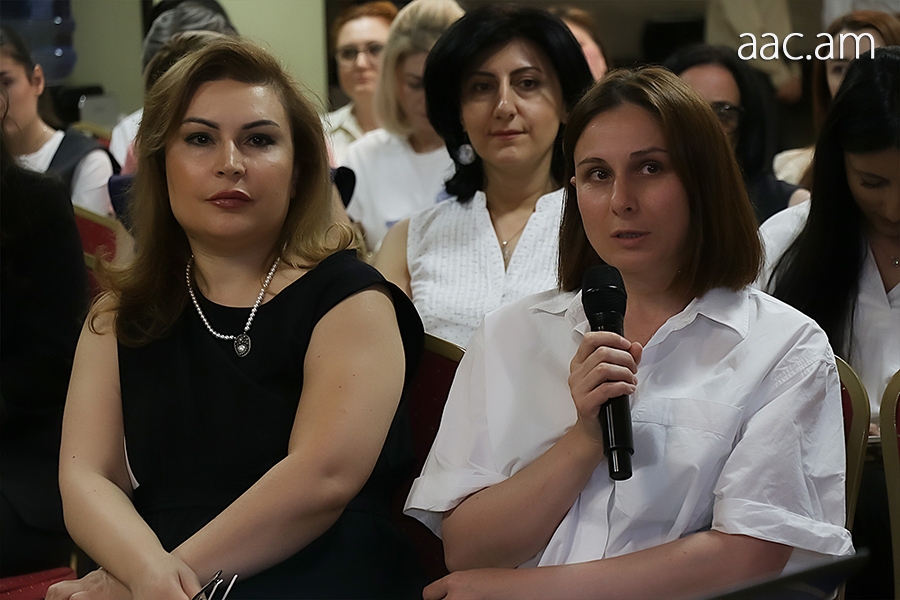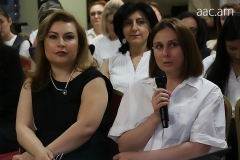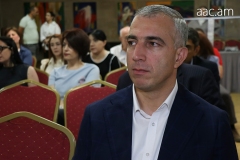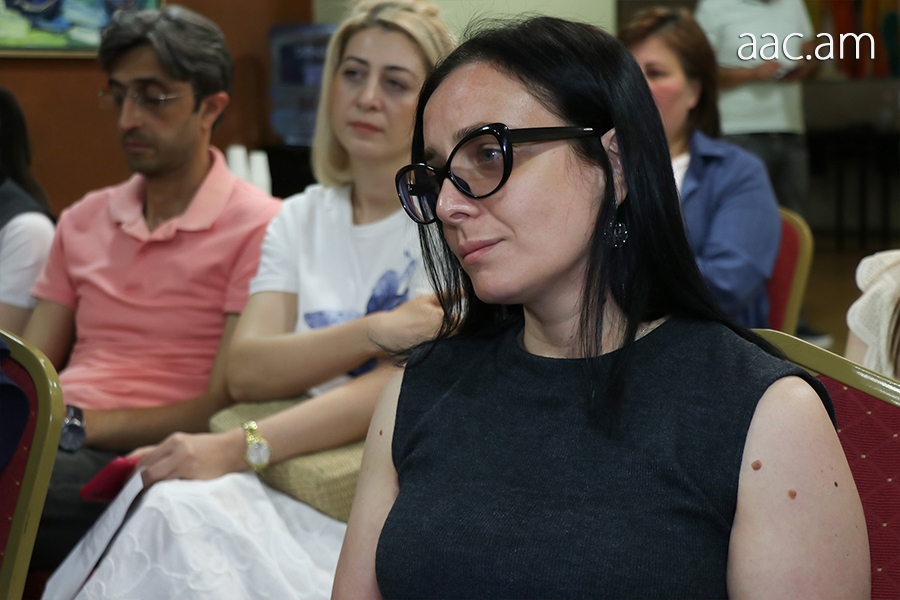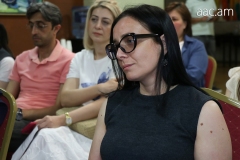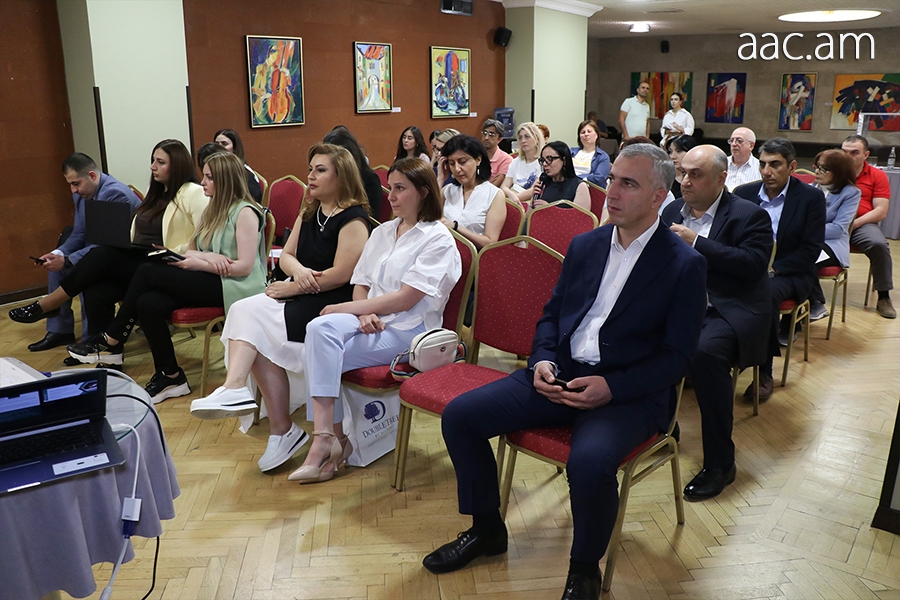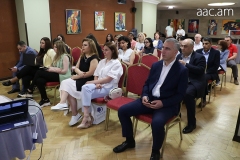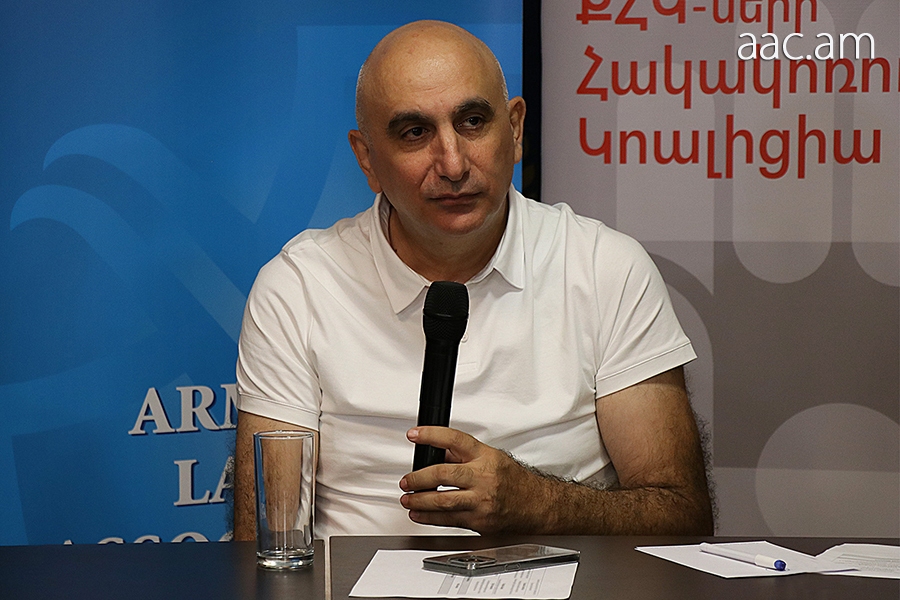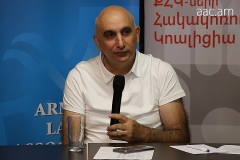“Every member of society must feel the benefits of the anti-corruption fight in their personal life”: ALA President at the presentation of the 2023-2026 anti-corruption strategy monitoring report
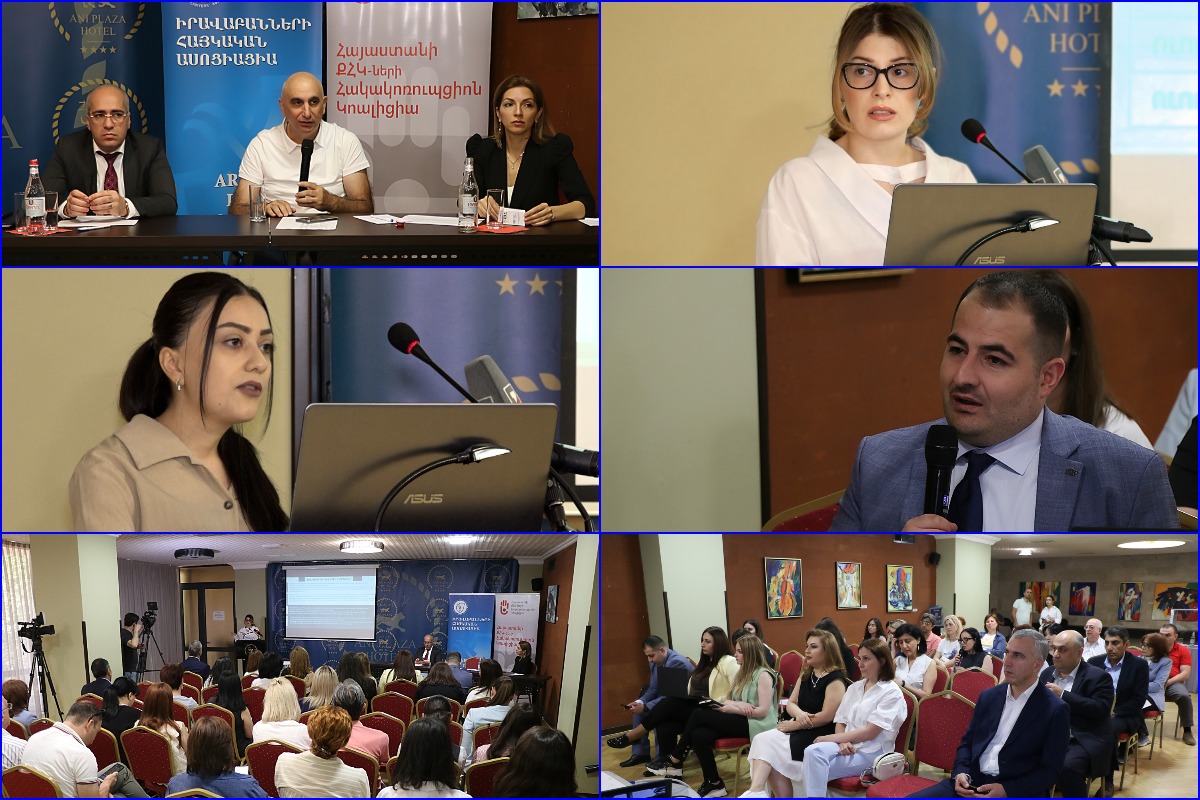
Karen Zadoyan, President of the Armenian Lawyers Association and Chief Secretary of the NGO Anti-Corruption Coalition, delivered an opening speech at the presentation of the public monitoring report on the implementation of actions under the Republic of Armenia’s 2023-2026 anti-corruption strategy and its action program for 2023-2024.
According to his observation, the results of the monitoring conducted are not entirely satisfactory, one of the reasons being that the strategy’s action program is quite comprehensive and multi-layered:
“I believe we have enthusiastically over-expanded the strategy and actions. This, in reality, cannot be fully implemented. That’s why last year I presented to the Ministry of Justice that we need to go over the strategy again, reduce many actions, and leave the main ones that will be important.”
The ALA President also drew attention to the issue of cooperation, the functions of the anti-corruption policy council, transparency and accountability of bodies in the anti-corruption institutional system, and other issues involving international organizations.
Later, Karen Zadoyan added that the ALA and Armenia’s NGO Anti-Corruption Coalition value constructive work with state bodies and have supported the fight against corruption: “We believe that only through joint efforts is it possible to register results in our country. Society has been waiting for results for a long time. Every member of society must feel the benefits of the anti-corruption fight in their personal life. Through joint efforts, it is possible to make Armenia a ‘clean’ country.”
Details in the video: https://youtu.be/5fWhIUpOogo?si=T_058nnCBO3Ii0cO
Deputy Minister of Justice Gevorg Kocharyan expressed gratitude to the Armenian Lawyers Association for both organizing the event and preparing the report.
“Perhaps the perspectives of state bodies and the public sector differ from each other, but we are well aware of the importance of involving civil society organizations and all interested parties within the framework of monitoring implementation. Already during the development phase of the 2023-2026 anti-corruption strategy, we had a participatory, inclusive process. NGO opinions were taken into account, including those of the ALA. We adopted an ambitious strategy, possibly even overly comprehensive. Under these conditions, effective monitoring implementation is extremely important,” noted Kocharyan.
According to the Deputy Minister, the ministry is working on evaluating monitoring results and effective strategy implementation.
Details in the video: https://youtu.be/ATwwUG8ahkc
Diana Sarumova, Chairman of the Management Board of Armenia’s NGO Anti-Corruption Coalition, emphasized the important role of civil society in the process of anti-corruption policy formation, oversight, and effectiveness improvement.
“Today it is already evident that the unified and joint work of state structures, business, and NGOs is very important for restoring trust and preserving the democratic system. On behalf of the European Business Association, I want to note that good governance, transparency, and accountability are important not only for state governance but also for improving the economic and investment climate and forming a competitive market,” noted Sarumova.
According to her, the presented report can become a source of information as a tool for understanding what successes we have achieved and where gaps still exist.
Details in the video: https://youtu.be/CsfABn5e1qQ
Syuzanna Soghomonyan, anti-corruption expert at the Armenian Lawyers Association, noted that within the framework of the current strategy, 5 separate areas or strategic objectives are distinguished:
- Prevention of corruption and strengthening of good governance systems,
- Improvement of legal and institutional systems for combating corruption,
- Improvement of anti-corruption education and public awareness mechanisms,
- Business good governance, protection of business rights, and facilitation of business administration,
- Improvement of anti-corruption monitoring and evaluation systems.
Speaking about the implemented work and monitoring objectives, Syuzanna Soghomonyan noted that 69 actions that were to be implemented during 2023-2024 were evaluated.
“Of the 69 actions, 21 were fully implemented, 9 mostly, 33 were considered partially implemented, and 6 were not implemented. The overall strategy performance indicator is 30.43%,” she said.
Details in the video: https://youtu.be/0M4muZptf3I
Marianna Avagyan, advocate at the Armenian Lawyers Association, presented the strategy evaluation by areas and strategic objectives. 69 actions are subject to implementation in 5 areas. Specifically:
- Prevention of corruption and strengthening of good governance systems – 21,
- Improvement of legal and institutional systems for combating corruption – 15,
- Improvement of anti-corruption education and public awareness mechanisms – 14,
- Business good governance, protection of business rights, and state-business administration facilitation – 13,
- Improvement of anti-corruption monitoring and evaluation systems – 6.
“The purpose of monitoring was to evaluate the implementation progress of actions under the Republic of Armenia’s 2023-2026 anti-corruption strategy and its action program for 2023-2024, as well as to conduct impact level (qualitative) assessments of selected actions.
Additionally, to identify actions that were implemented, mostly implemented, partially implemented, or not implemented, their reasons, and to conduct procedural (quantitative) assessments of these actions,” noted Marianna Avagyan.
Thus, the procedural (quantitative) assessment performance indicator for 2023-2024 was 30.43%. According to the weighted average method of the variation series, it was 44.25%.
Details in the video: https://youtu.be/9n3JAMBik-4
Ephrem Karapetyan, Head of the Anti-Corruption Policy Development and Monitoring Department at the Ministry of Justice, noted in his speech at the presentation of the public monitoring report on the implementation of actions under the 2023-2026 anti-corruption strategy and its action program for 2023-2024 that the first objective of the work performed relates to fundamental issues of corruption prevention.
“Within this framework, we should note that here, essentially, we have mainly envisioned the development of draft legal acts, which have been mostly completed. As a result of this work, draft legal acts have already been developed regarding a number of directions, most of which have been circulated, while some are in the discussion phase,” he said.
According to Ephrem Karapetyan, problems often arise with the content of actions envisioned by the anti-corruption strategy, which create additional obstacles during the implementation phase.
Details in the video: https://youtu.be/8wFc4Prkivw
Subsequently, an exchange of ideas took place between event guests, experts, and representatives of state bodies, with several questions of concern to attendees being raised.
We can familiarize ourselves with the complete report here.
Please also note that the report presentation took place on June 11, 2025, and you can view the slides presented during the event here (available in Armenian).


